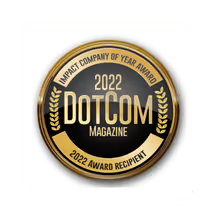
LLM Finetuning Services
Go From Generic to Domain Specific. Hone Your Model with Azumo's LLM Finetuning Services
Unlock the full potential of large language models with specialized finetuning services from Azumo. Our development team transforms general-purpose AI into domain experts that understand your industry, speak your language, and deliver precisely the intelligence your applications need to excel.
Introduction
What is LLM Finetuning
Azumo provides LLM fine-tuning services that adapt foundation models to your specific domain, data, and quality standards. We fine-tune OpenAI GPT, LLaMA, Mistral, and other open-source models using supervised fine-tuning (SFT), reinforcement learning from human feedback (RLHF), and direct preference optimization (DPO). All training runs under SOC 2 compliance with private infrastructure options.
Fine-tuning is not always the right answer. We start by evaluating whether prompt engineering, RAG, or fine-tuning (or a combination) best fits your use case. When fine-tuning is justified, our process includes training data preparation and quality assessment, baseline evaluation against your specific tasks, iterative training with custom benchmarks, and A/B testing against the base model before deployment.
Results vary by task, but our fine-tuned models typically show 30-60% improvement in domain-specific accuracy, with notable gains in terminology consistency, output formatting, and reduced hallucination on specialized topics. We provide detailed evaluation reports with metrics that map directly to your business requirements.
The Problem with Models That Speak Everyone's Language Except Yours
Off-the-shelf LLMs are generalists by design. They know a little about everything but master nothing specific to your business. Without fine-tuning, your AI speaks in generic responses that miss industry terminology, violate compliance requirements, and require constant prompt engineering to get right.
Prompt engineering hits a ceiling
When models can't internalize domain knowledge, teams resort to increasingly complex prompts that become brittle and expensive to maintain
Data preparation consumes the timeline
80% of machine learning work is data preparation, and fine-tuning on poor-quality data amplifies errors rather than reducing them
Compute costs spiral unpredictably
Full model fine-tuning requires extensive GPU resources, with cloud computing costs becoming prohibitively expensive as data volume grows
Skills gaps delay deployment
30% of organizations lack the specialized AI expertise needed for fine-tuning, forcing reliance on expensive external partners
+60%
$18M
3-5x
Comparison vs Alternatives
Comparing Fine-Tuning Methods LoRA vs. Full Fine-Tuning vs. RLHF
We Take Full Advantage of Available Features
Domain-specific training on proprietary datasets for specialized expertise
Parameter-efficient finetuning techniques to minimize computational costs
Multi-task learning capabilities for versatile model performance
Model evaluation and validation frameworks for quality assurance
Our capabilities
Boost model accuracy by +20 % with domain‑specific fine‑tuning so your team spends less time editing and more time delivering value.
How We Help You:
Dataset Selection and Annotation
Select a dataset that aligns with your business tasks and annotate it to highlight critical features. This precision ensures that the model understands and generates responses relevant to your unique business environment and customer interactions.
Hyperparameter Optimization and Model Adaptation
Optimize hyperparameters to ensure effective learning without overfitting, and adapt the model’s architecture to suit the specific requirements of your tasks. These steps guarantee that the model performs optimally, handling your data with enhanced accuracy and efficiency.
Customize Loss Functions and Training
Tailor the loss function to focus on metrics that matter most, ensuring the model’s outputs meet your operational goals. Train the model using your annotated dataset, with continuous adjustments and validations to refine its capabilities and performance.
Early Stopping and Learning Rate Adjustments
Implement early stopping to conserve resources and maximize training efficiency, and adjust the learning rate throughout the training phase to fine-tune model responses, ensuring continual improvement in performance.
Thorough Post-Training Evaluation
Evaluate the model extensively after training using both qualitative and quantitative methods, such as separate test sets and live scenario testing. This thorough assessment ensures the model meets your exact standards and operational needs.
Continuous Model Refinement
Use evaluation insights and real-world application feedback to refine the model to maintain its relevance and effectiveness. This ongoing optimization process ensures that your model adapts to new challenges and data, continually enhancing its utility.
Engineering Services
Finetuning a Large Language Model (LLM) involves a streamlined process designed to enhance your domain specific intelligent application. We ensure that every step is tailored to optimize performance and match your needs.
Custom Data Preparation
We start by curating and annotating a dataset that closely aligns with your business context, ensuring the model trains on highly relevant examples.
Expert Model Adjustments
Our experts optimize the model's architecture and hyperparameters specifically for your use case, enhancing its ability to process and analyze your unique data effectively.
Targeted Training and Validation
The model undergoes rigorous training with continuous monitoring and adjustments, followed by a thorough validation phase to guarantee peak performance and accuracy.
Deployment and Ongoing Optimization
Integrate your domain specific model and continuously optimize it for new data. A process for continued refinement ensures long-term success and adaptability.
LLM Fine Tuning
Consult
Work directly with our experts to understand how fine-tuning can solve your unique challenges and make AI work for your business.
Build
Start with a foundational model tailored to your industry and data, setting the groundwork for specialized tasks.
Tune
Adjust your AI for specific applications like customer support, content generation, or risk analysis to achieve precise performance.
Refine
Iterate on your model, continuously enhancing its performance with new data to keep it relevant and effective.
With Azumo You Can . . .
Get Targeted Results
Fine-tune models specifically for your data and requirements
Access AI Expertise
Consult with experts who have been working in AI since 2016
Maintain Data Privacy
Fine-tune securely and privately with SOC 2 compliance
Have Transparent Pricing
Pay for the time you need and not a minute more
Our finetuning service for LLMs and Gen AI is designed to meet the needs of large, high-performing models without the hassle and expense of traditional AI development
Case Study
Scoping Our AI Development Services Expertise:
Explore how our customized outsourced AI based development solutions can transform your business. From solving key challenges to driving measurable improvements, our artificial intelligence development services can drive results.
Our expertise also extends to creating AI-powered chatbots and virtual assistants, which automate customer support and enhance user engagement through natural language processing.
Benefits
Our fine-tuning service adapts foundation models to your domain using SFT, RLHF, and DPO techniques under SOC 2 compliance. We fine-tune OpenAI GPT, LLaMA, Mistral, and other open-source models with your proprietary data. Results typically show 30-60% improvement in task-specific accuracy, with detailed evaluation reports benchmarking against base model performance on your specific use cases.
Improved Model Performance
Fine tuning AI models for specific tasks leads to more accurate outputs, ensuring higher efficacy and relevance to your unique requirements.
Optimized Compute Costs
By fine tuning LLMs specifically for your use case, you can significantly reduce computational costs for both training and inference, achieving efficiency and cost-effectiveness.
Reduced Development Time
LLM fine tuning from the outset allows you to establish the most effective techniques early on, minimizing the need for later pivots and iterations, thus accelerating development cycles.
Faster Deployment
With LLM fine tuning, models are more aligned with your application’s needs, enabling quicker deployment and earlier access for users, speeding up time-to-market.
Increased Model Interpretability
By choosing a fine tuning approach that is appropriate for your application, you can maintain or even enhance the interpretability of the model, making it easier to understand and explain its decisions.
Reliable Deployment
LLM fine tuning helps ensure that the model not only fits the functional requirements but also adheres to size and computational constraints, facilitating easier and more reliable deployment to production environments.
Why Choose Us
2016
100+
SOC 2
"Behind every huge business win is a technology win. So it is worth pointing out the team we've been using to achieve low-latency and real-time GenAI on our 24/7 platform. It all came together with a fantastic set of developers from Azumo."






%20(1).png)




